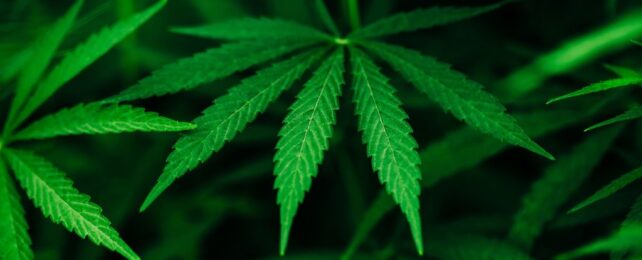The cannabis plant hosts more than a hundred species of fungi in its roots, stems, leaves, flowers, and buds, some of which can produce potentially harmful spores.
Nevertheless, not one nation or state in the United States that has legalized cannabis requires safety testing for all of these potential mycotoxins.
Researchers at the University of Tennessee, Arizona State University, and Simon Fraser University in Canada warn that is an oversight.
To ensure legal cannabis and hemp can be safely eaten, vaped, or smoked, the international team argues we need to know more about the fungi living on these plants and their potential health effects.
"If medical use of cannabis becomes more widely accepted, contaminant fungi represent a potential concern in public health," write the review authors, led by plant pathologist Kimberly Gwinn from the University of Tennessee.
In the end, the team could only track down one nationally representative study that examined the link between cannabis use and fungal infections.
Those findings from 2020 revealed cannabis users are 3.5 times more likely to develop a fungal infection, compared to non-users.
It isn't yet clear if those infections are coming directly from the cannabis itself, but studies have found evidence of fungal spores sticking to the resin on cannabis buds and flowers.
While cannabis isn't the only possible source of such fungal outbreaks, the plant could be a source of 'opportunistic infections' among heavy users or those who are immunocompromised.
In the review, Aspergillus, Penicillium, Fusarium, and Mucor were the most common potentially concerning species found in cannabis plants.
If inhaled alongside cannabis, it's possible that their toxic spores could spread into the nasal passage and lungs, causing tissue infections that could be life-threatening, especially in those who are immunocompromised.
In the 2020 study, cannabis users who were immunocompromised were even more likely to host a fungal infection than than immunocompromised people who did not use cannabis.
Meanwhile, in 2019, a study found 89 percent of fungal lung infections from cannabis use were associated with smoking, while only 4 percent were associated with edibles.
"Although the heating conditions during smoking and vaping should kill fungal spores, they may be insufficient to render all spores nonviable," note Gwinn and colleagues.
Not all fungal spores are necessarily bad for you – some can even be beneficial to human health – but until scientists know more about the harms and benefits in regards to those associated with cannabis, regulators won't know what to screen for.
It may not just be the lungs that are impacted, either. Cannabis use is associated with fungal infections in kidney transplant patients and an increased risk of pneumonia, which can be triggered by fungal infections, too.
The review argues that further studies are needed to realize the true scale of fungal contamination in cannabis products and at what concentrations there could be potential health effects.
Properly drying cannabis buds out and storing them in low humidity could be key to reducing harmful fungal contamination.
"There is a paucity of published studies on mycotoxin presence in cannabis-derived products," write the researchers of the review.
"The legalization of cannabis in several countries, including Canada and in numerous US states, should increase the availability of samples for testing for mycotoxin presence moving forward."
The study was published in Frontiers in Microbiology.
